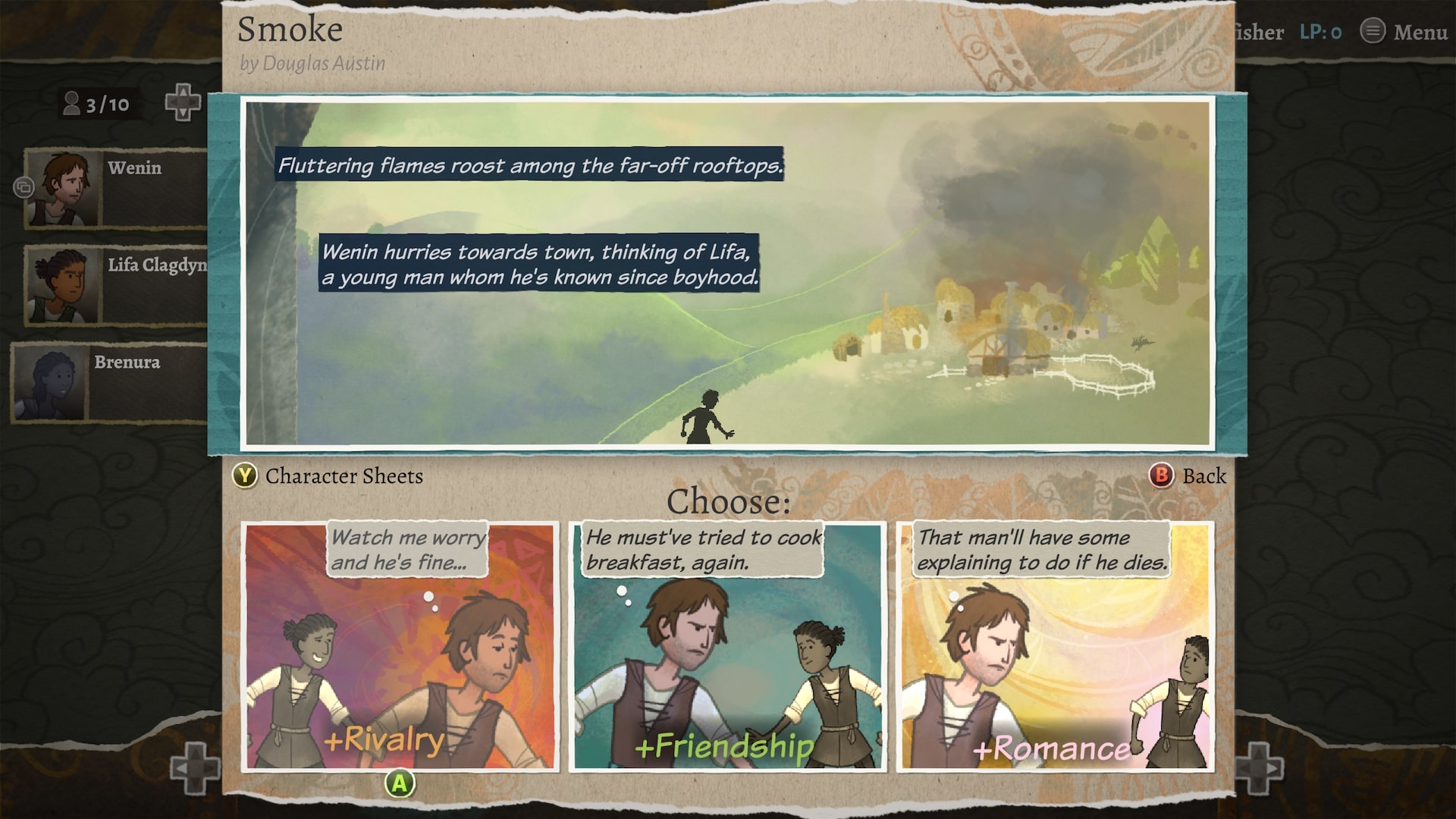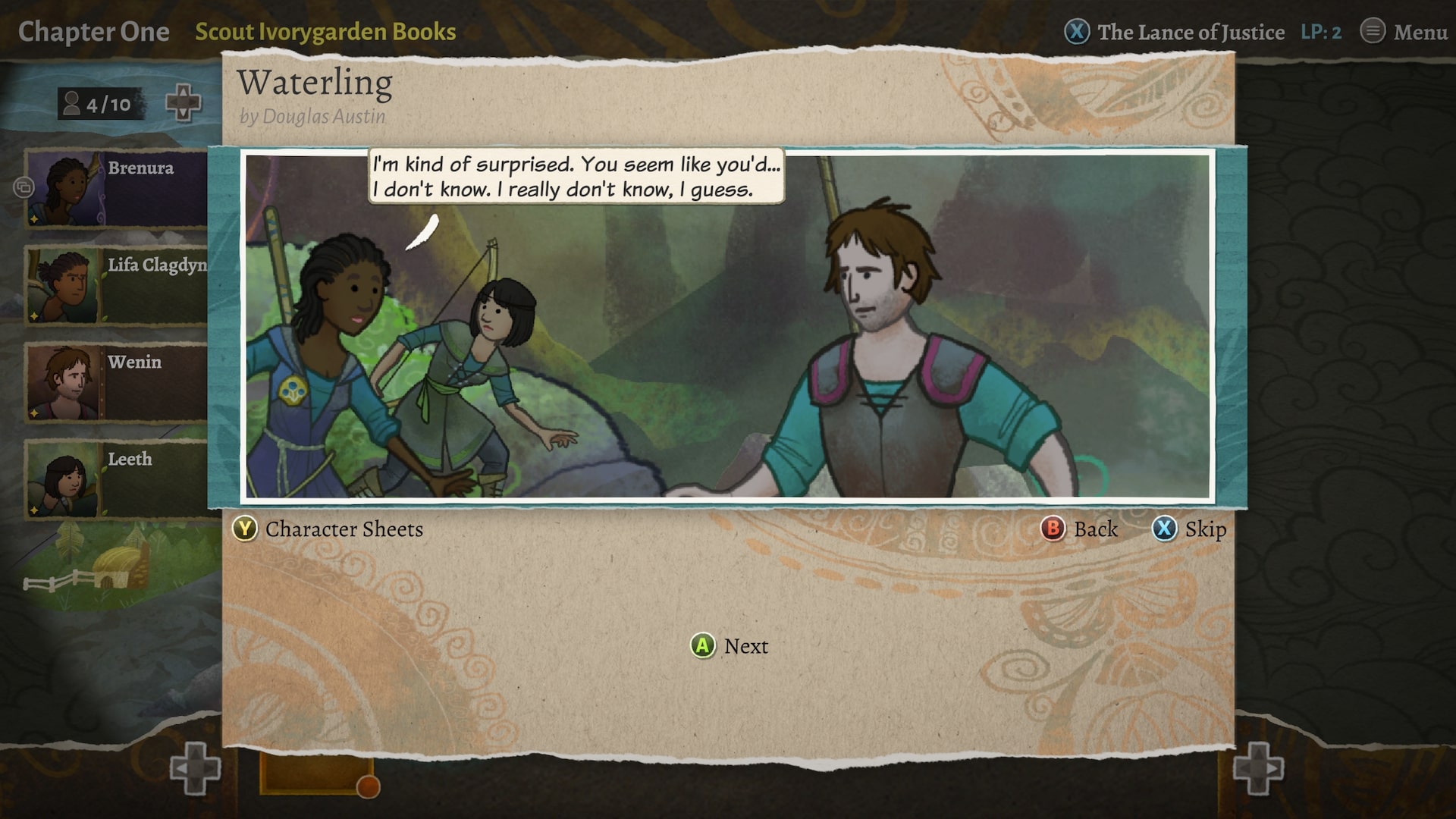This D&D-inspired adventure game was Baldur’s Gate 3 before Larian’s RPG blew up, and the console launch proves it’s still a certified classic
“Here, in our yondering country…” The opening chapter of my Wildermyth adventure reads just like a fairytale, with rookie mystic Brenura leafing through the pages of a forgotten tome as monsters scratch at her front door. These creatures are Gorgons – one of the many species of brutish beasts prowling these lands – and boy do they sound angry. I have only moments before they break through, but it’s just enough time to tap into Brenura’s nascent magical gifts as she picks up a dusty old staff to fight back.
Wildermyth begins like all the best tabletop RPGs do: with a lot of action, a lot of chaos, and a lot of formative decisions to make from the get-go. Everything from the beautiful hand-drawn artwork to the lyrical prose that cleverly guides me through the tale draws me further into Worldwalker Games’ intrepid adventure, proving it the ultimate blend of all things roleplaying, visual novel, and turn-based tactics. It might have been overshadowed in the last 12 months by a certain other mammoth RPG, but I think there’s still room on the scene for both it and Baldur’s Gate 3 to reign as the D&D supremes now that it’s finally launched on consoles.
Lore of the worlds

I didn’t expect my first few moments in this Dungeons & Dragons-like to be so gripping, yet here I am ten hours later. My Wildermyth party currently consists of five scrappy young heroes, though I’m still most fond of my original three: warrior-paladin Wenin, rogue archer husband Lifa, and the aforementioned mystic Brenura. Accompanied by two more archers in the form of Leeth, recruited from a neighbouring village, and Brenura’s daughter Plyth, who joined somewhere between chapters two and four, we are known in these lands as the Lance of Justice. That’s right: my traveling troupe of heroes has a sweet little nickname, and I’m loving every second.
The magic of Wildermyth can be found in each of its gameplay quirks, each one seemingly borrowed from a different genre of video game. It’s a visual novel-style narrative experience involving intermittent roleplaying and action choices, but it’s also about managing resources, dividing and conquering, and claiming land from enemies much as you might do in the best 4X games. Meanwhile, combat encounters transport players from a sprawling map view to a grid-based tabletop scenario, with each hero able to move a certain number of squares per turn. Having to place each of your heroes in formation adds an element of turn-based tactics – you don’t want that squishy mystic standing right next to those thrusks and dweavers, after all – but it all feeds into Wildermyth’s roots as a digital representation of playing a tabletop game.
Tailor-made machinations

Wildermyth tells a seamless, ongoing story that the player writes for themselves.
This careful attention to detail, building up a sense of character and storyline, is what immediately feeds my imagination and makes it feel so believable as a roleplaying adventure. Each Wildermyth hero is ascribed a set of personality aspects and traits, from Dreamer to Slacker, Poetic to Heartbroken, that gives them unique hooks. These hooks provide combat or dialogue edges, raising the chances of being able to come across unique loot or rewards while exploring the map. Opportunities arise frequently in Wildermyth, usually pulling one or two heroes off the beaten path to chase a new lead. Wenin’s vivid dreams led him to the home of an old man in the south of the region, while Bremura chasing after a waterling nymph proved a whole new adventure besides. All of these moments feel random, yet somehow tightly scripted – and it’s all down to how precise the scriptwriting is.
For instance, setting Wenin and Lifa as soulmates in the relationships tab means that they refer to each other as their partners, something that gets mentioned multiple times even in the absence of the other. Meanwhile, Bermuda’s rivalry with Lifa means that the two often bicker and come across as exasperated with one another. The constant one-upmanship means they’re more likely to succeed in pulling powerful stunts on the battlefield, though, thereby buffing one another’s damage output. Because what are frenemies for anyway?
The flexibility of the hero’s relationships, both with each other and with unseen NPCs in between chapters, reinforces Wildermyth’s constant flow of narrative intention. It’s the definitive choose-your-own-adventure game for those who like their roleplaying with a little bit of literary flair, something I’m finding incredibly refreshing off the back of so many BG3 playthroughs. Much as the unfinished book of adventures found by Bremura on that fateful first day, Wildermyth tells a seamless, ongoing story that the player writes for themselves. The fact that the developer does such a great job of making me forget my own hand in the matter? Why, it’s just like having a brilliant DM at the helm of your campaign.
Check out the best RPGs to scratch that roleplaying itch, from Dragon’s Dogma 2 to Pillars of Eternity.











